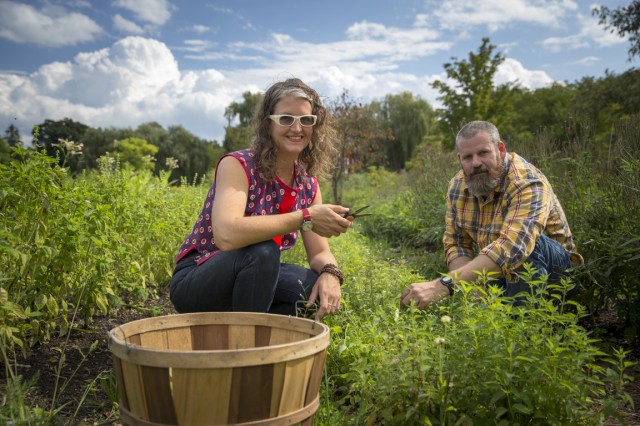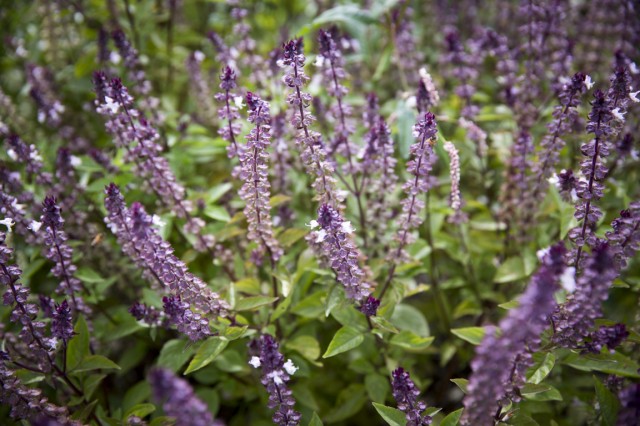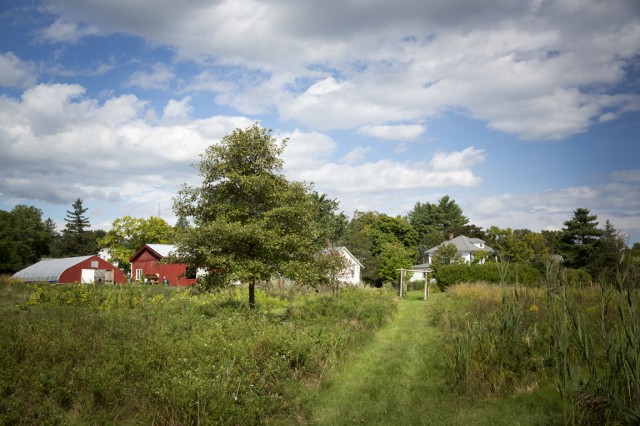When I first started my radio show “Spice: The Final Frontier” I was planning to focus on interesting historical facts about herbs and spices along with some tips on how to cook with them. As I continued researching what I thought of as strictly culinary herbs and spices, I found that a long history of medicinal use often preceded their use in the kitchen. Whether it was rosemary, which was revered in ancient Greece as a memory aid or sage, which had so many healing properties that it was considered sacred in Ancient Rome, I found that these plants are still being studied today for the same reasons.
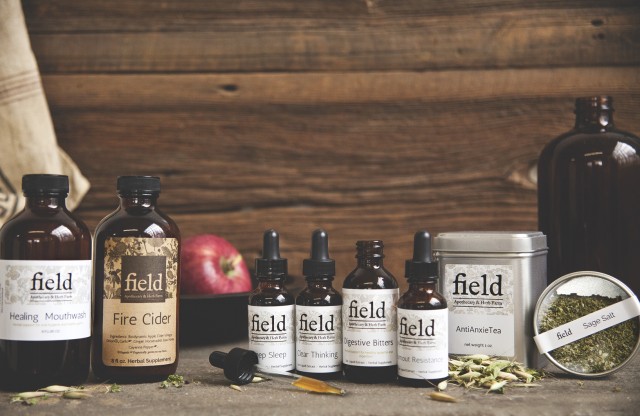
An array of Field Apothecary items. (Photo credit: Sharokh Mirzai)
Throughout the world, folk traditions coexisted with the professional study of herbalism. The practice of going into the garden or woods and getting a bit of something to cure whatever ails you continues, but in this country that knowledge has largely faded from the collective memory. Dana and Michael Eudy of Field Apothecary want to bring this particular field of medicine “back to the field.”
Whether the loss of an herbal healing tradition is a casualty of the Atomic Age or due to the sweetening and blanding of the American diet, the Eudys are actively engaged in resuscitating it here in the Hudson Valley. “There are written references, of course, but there isn’t really a widespread oral tradition. We’re hoping to bring back and hold on to that knowledge,” says Dana.
My daughter and I visited them on their three-acre “pharm” in quaint Germantown, NY, where the couple is growing about 60 varieties of herbs and using them in health-promoting as well as culinary preparations. We sat down to steaming cups of “tulsi” or holy basil tea (made in a French press), and discussed the pair’s philosophy of using plant-based medicines. Thousands of years of trial and error have led to several great herbal traditions, which are accompanied by texts, like the Hindu Ayurveda, listing hundreds of herbs and remedies. Before the advent of modern scientific method, European apothecaries dispensed herbal tinctures and elixirs to physicians and patients. We have those apothecaries toiling away with their mortars and pestles to thank for many of the medicines provided by pharmacists today. In this country, Native Americans added to the European’s store of knowledge, showing the colonists how to use plants such as echinacea and goldenseal and even discovering uses for species brought over accidentally from Europe, like mullein.

Snakes intertwined, from the engravings created of Albertus Seba’s collections in the late 17th & early 18th century. Seba was an apothecary and naturalist whose immense & renowned Wunderkammer was purchased by Peter the Great after his death in 1736. (Source: Tumblr)
But how are the Eudys managing to keep focused with such a vast store of knowledge, covering thousands of herbs and just as many years of study? Michael explains that at Field Apothecary they concentrate on naturally-occurring plants of the region—nettles, St. Johns wort, mullein, mugwort, chicory, yarrow among them—that are either indigenous or naturalized in the area, as well as plants from the Chinese or Indian pharmacopia that grow easily here. “Nothing too difficult or obscure—we want the plants to be accessible to people,” Michael says.
Michael and Dana suggest that our bodies are more attuned to ingesting healthful components in their whole natural “package” and will therefore more readily absorb the nutrients. While we’ve been ingesting plants for millennia, the concept of taking medicine and supplements in concentrated pill form has only been with us several decades.
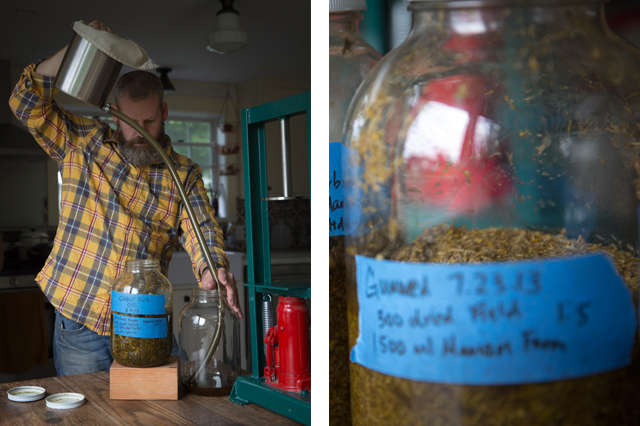
“Nothing too difficult or obscure—we want the plants to be accessible to people.” — Dana and Michael Eudy
We now know that many of the most beneficial phytonutrients in plants have a bitter taste, and Michael says that recent studies have also shown something that Chinese herbalists have known for centuries: it is also important to actually taste bitterness. “When you take a pill its void of any sensory experience. But when we taste bitterness on our tongue something happens physiologically—it sends a message to the brain, which sends messages throughout the body, mainly the pancreas and liver. The salivary glands are stimulated, which is the first form of digestion.” In this way the experience of taste helps pave the way for the medicine to do its work.
Rather than a wholesale rejection of the medical establishment, Michael and Dana see what they do as part of a “healthcare pyramid.” They believe that learning about preventive remedies and how to treat some basic ailments at home will ease an overburdened healthcare system. “When you start holding back just a little bit, your confidence builds really quickly. You don’t feel like this is your only choice—you don’t need to go straight to the top of that pyramid right away.”
The fact that they are part of a trend that sees itself not as combative, but in partnership with conventional medicine has advantages for doctors and their patients as well. “Our very first class that we did here, ten people came and three of them were doctors!” Dana admits to feeling a bit intimidated, but found that the doctors were there to learn from her. “They want to know more about natural remedies now because their patients—especially those with children—are asking about it.” Natural medicine is recovering from its snake-oil reputation and gaining credibility again.
Getting over the fear of quackery is only part of the task for Dana and Michael. They are also combating the somewhat fusty reputation of modern herbalism, that of an older generation. When Michael and Dana looked at what was available on the market, they were put off by packaging and presentation that was geared to an audience they didn’t identify with. “We are our target audience. We’re young. We are parents. Field Apothecary looks a little bit hipper because that’s what would have made us get into this a lot earlier.”
A fresher visual look is matched by a more open approach to using the healthful herbs in new ways, including as cocktail ingredients, which a recent customer playfully described as “sneaky medicine.” “It’s about introducing the idea of herbs to people where they might not expect it,” says Dana, “then they can go from there.” For the recent Olanafest (a prestigious celebration of food, art and farming at the 250-acre integrated estate of Hudson River School Painter Frederic Edwin Church) Dana and Michael were asked to design a cocktail using as inspiration the surrounding orchards, meadows and woodlands of the historic site.
Local mixologists and chefs are beginning to take notice as well. “We’re always experimenting with ways to get [the herbs] into food.” Their current line-up of products includes infused oils and salts—even soda kits. Plans for a food truck selling their products and serving foods showcasing fresh herbs are in the works.
Outside, the air rich with the earthy scent of herbs basking in the late summer sun, we strolled through the rows as Dana named the plants and encouraged us to touch and smell them. For me, she filled a bag with clippings of lemon balm, shiso, mint and three types of holy basil. “Our goal is just to get people to walk through the gate—to get them into the garden,” she said. “One or two things might catch their interest, but then they’ll discover a lot of things on their own. There’s a whole discovery that takes place.” After an afternoon of sipping tea, wandering the grounds and imbibing in Field Apothecary’s heavenly aromas, we couldn’t help but feel infused with herbs ourselves. And while there isn’t an actual gate (Dana and Michael have a open policy with their animal neighbors), I detected a distinct bounce in my step on my way out of the garden.
Check out all of our Field Apothecary products on our Wellness and Kitchen channels.
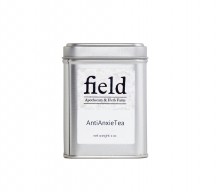 |
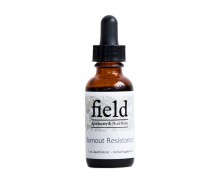 |
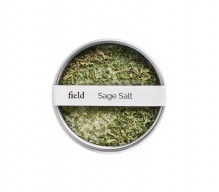 |
| Burnout Resistance |
Lisa Kelsey is a Dutchess County, NY-based art director. Her radio shows “Stirring the Pot” on home cooking, and “Spice: The Final Frontier” on herbs and spices, can be heard on Pawling Public radio. paulingpublicradio.org
Preston Schlebusch is the collaboration of Lisa Preston and Nils Schlebusch who started recording the world through travel photography nearly 16 years ago. Lisa is American born but raised in Mexico and Nils is Franco-German with a dash of Estonian but raised in Spain. So the two are latin at heart! From their first adventure to Cuba to start their career to their latest trip to Vancouver for a ski story their main joy is stoking the fire of their curiosity for the culture and people they meet on their travels. Nils loves adventure, Lisa sometimes stresses about weather but they both feel blessed to have chosen a job that gives them the opportunity to look for the beauty in the world.

